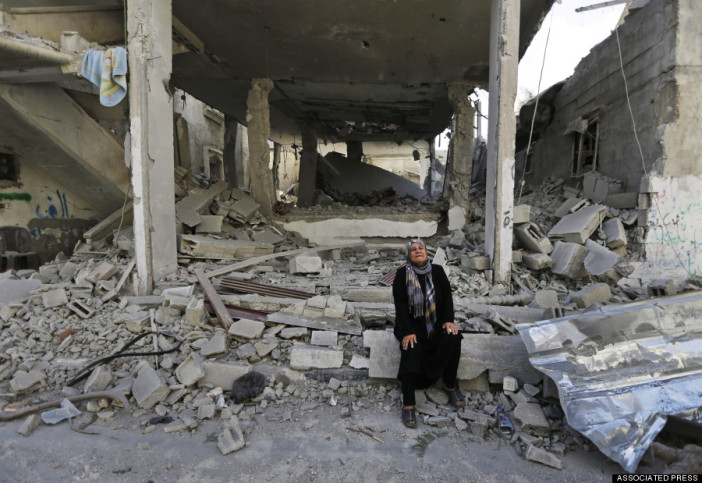It has been exactly a year since Israel launched its brutal ‘Operation Protective Edge’ campaign on the Hamas-ruled Gaza Strip, with the conditions of Palestinians in the isolated coastal region looking as bleak as ever. This time last year civilians in Gaza were being confronted with the harrowing scenario of a third major conflict in six years, as the next 50 days saw Israeli forces continuously bombarding suspected ‘militants’ and civilians alike, resulting in over 2,200 casualties. The war sparked global outcries amongst Palestinian sympathisers, but also divided opinions on Palestine/Israel issue.
According to statistics post-conflict, 4,564 rockets and mortars were fired from Gaza towards Israel, with the Israel Defence Force (IDF) responding with 5,263 attacks of their own. Israeli casualties were limited to 66 soldiers and a handful of civilians, in large parts due to the state’s Iron Dome Defence System. On the other side of the border however, the impact was far more severe. A total of 2,220 Palestinian casualties were reported, 1,492 of which were innocent civilians. Of those 551 were child casualties, and 299 women.
A ceasefire between the respective sides was eventually called on the 26th August, with international donors at a “Reconstructing Gaza” conference in Cairo two months late, pledging to collectively donate $5.4 Billion towards the rebuilding campaign.
A year on and Palestinians have been left in the lurch, with little of those funds having arrived. According to Gaza-born medical practitioner, Dr. Bassel Abuwarda, who earned global recognition for his work at the Al-Shifa Hospital during the conflict, the situation remains dire.
“This war has created many disabilities. Many people have lost their houses; there are many refugees who are moving from house to house, school to school trying to find shelter here and there. The situation hasn’t been any worse for the past eight years, because the siege is getting stricter,” he highlighted.
Despite the agreement to call a halt to the campaign, Israel has been accused of breaking the ceasefire “on an almost daily basis”. This includes firing on fishermen who stray too far from the Gazan coast (as per the restrictions of the blockade), invading parts of the regions north, and in recent weeks attacking several police stations. And despite occurring frequently, Abuwarda said such incidents garnered little attention from the international media.
The war and blockade has taken its toll on the physical and psychological health of civilians. Apart from the emotional scars, Palestinians are denied the right to leave Gaza to seek urgent medical care for injuries sustained during the conflict. Abuwarda himself faces a similar situation.
“I had my knee injured and I have to do a surgery outside Gaza, but until now I can’t leave. Being a doctor, I can’t really practice my job with this knee. I need to get out of Gaza to do the surgery,” he explained, describing his situation as minor compared to others.
The impact has been mostly felt on children. A report published on Monday by Save the Children, says 10% of the Palestinian children suffered permanent disability as a result of the violence. Three-quarters of Gaza’s children experience unusual bedwetting regularly, while 89% of parents report that their children suffer constant feelings of fear, and more than 70% of children say they are worried about another war.
Motasem Dalloul, a journalist and manager of the Days of Palestine publication, said that despite widespread pledges of financial support, little has reached Gaza. As a result, the rebuilding project remains stagnant.
“Nothing has been done yet. No construction material has been allowed through Gaza… none of the pledges made during the donor conference, which was held in October two months after the ceasefire, have been fulfilled,” he declared.
According to him, the siege is only getting harsher as Israel believes Hamas are using construction material to dig tunnels to traverse the border, and effectively work around the blockade. This narrative has allegedly led to the blocking of materials into Gaza.
He also suggested Palestinians were becoming disillusioned with the international community’s inaction in helping break the siege.
“It is nine years of the Israeli siege, which is making their lives very difficult,” he added.
Since the conflict, Palestine has actively sought to hold Israel accountable for the massive loss of life and alleged human rights violations, including joining and formally submitting evidence thereof to the International Criminal Court (ICC). VOC (Mubeen Banderker)






 WhatsApp us
WhatsApp us 

